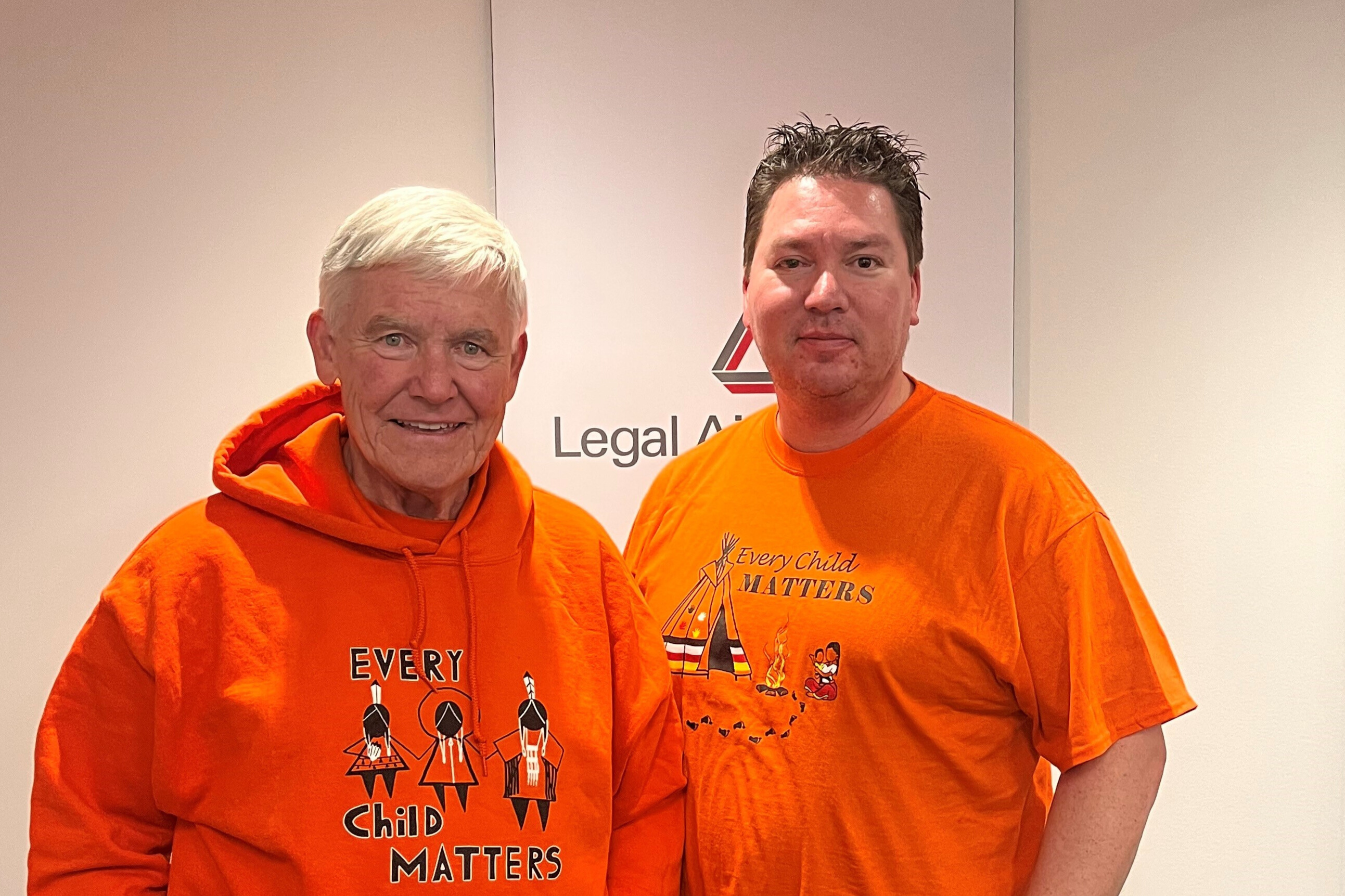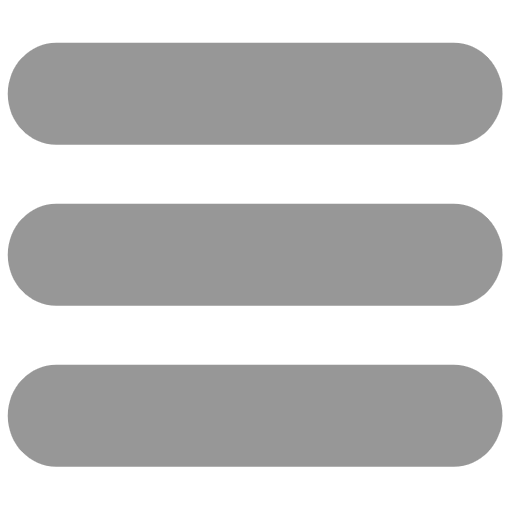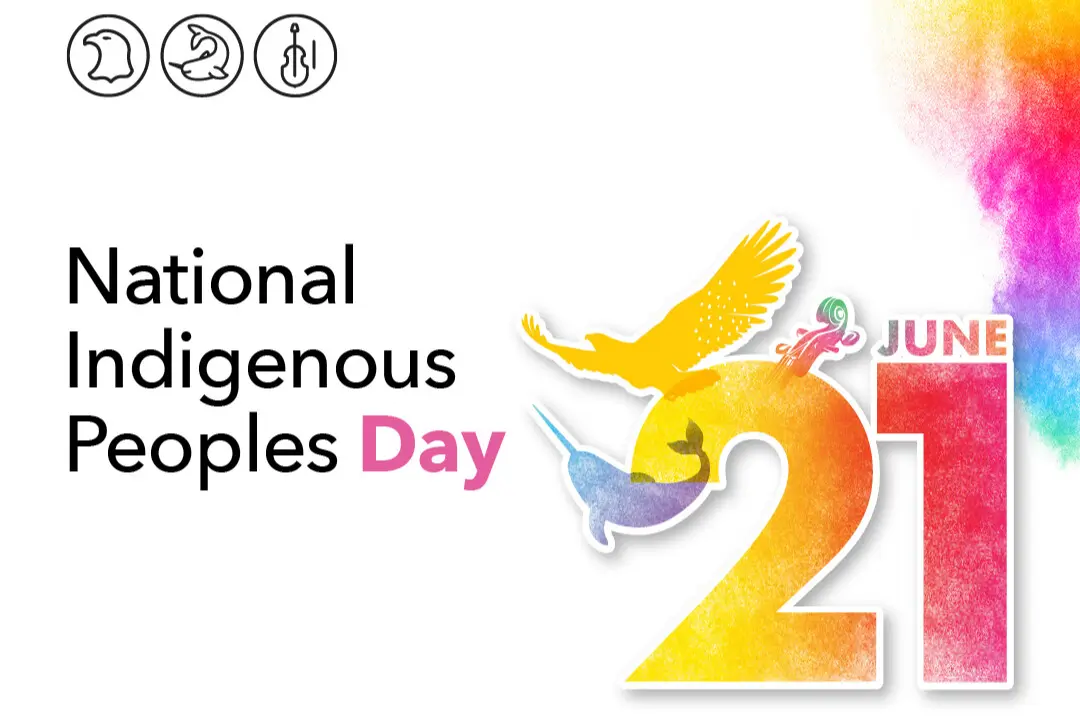“Whether we’re on the frontline of intake, a lawyer, or in administration, everyone in our organization benefits from compassion because it makes us who we are at LAA.”
Legal Aid Alberta is committed to working toward positive change in the legal system for Alberta’s Indigenous, First Nations, Métis, and Inuit peoples.
LAA Indigenous Liaison Aaron Sparvier opens new communication channels with Indigenous communities and gains important insights into the legal needs of Albertans in these communities.
Sparvier says there are several important components to serving Indigenous clients: Understanding Gladue factors, the legacies of residential schools and colonialism and their impacts on our Indigenous communities and approaching our clients with compassion.
“Whether we’re on the frontline of intake, a lawyer, or in administration, everyone in our organization benefits from compassion because it makes us who we are at LAA,” he says.
Originally from the Cowessess First Nation in the Treaty 4 area of Saskatchewan, Sparvier has extensive knowledge and experience in Indigenous law and criminal defence work.

Retired Justice John Reilly (left) and LAA Indigenous Liaison Aaron Sparvier (right) at an LAA learning event for Truth and Reconciliation.
His ongoing engagement with Indigenous communities has introduced unique and valuable educational opportunities for staff and roster lawyers. LAA’s 50th anniversary Lawyer Symposium included a blanket exercise hosted by the Wahkotowin Law and Governance Lodge. This experiential workshop focused on building an understanding of the shared history of Indigenous and non-Indigenous peoples in Canada.
In recognition of National Day for Truth and Reconciliation on Sept. 30, LAA hosted guest speaker Justice John Reilly, who shared his perspective on the unjust treatment of Indigenous peoples in the justice system as seen from his many years on the bench in Cochrane, Alberta.
Indigenous Court removes barriers to justice
People in the criminal justice system often struggle with non-legal life challenges that are barriers to justice and hinder their ability to resolve their legal issues.
Special courts are removing these barriers by helping people address their legal matters and the circumstances that contributed to them. Legal Aid Alberta lawyers play an essential role in these courts, representing accused people and ensuring their rights are protected.
Indigenous Courts operate in Edmonton and Calgary to help address the overrepresentation of Indigenous people in the justice system. Generations of Indigenous families have been haunted by the traumas of residential schools, the 60s Scoop, the Millennium Scoop and other colonization practices.
Ask A Lawyer: Calgary Indigenous Court
Indigenous Court deals with guilty pleas and bail hearings. It connects accused people with elders and other cultural supports and works to find alternatives to incarceration to help restore the person to society.
“We see the numbers of people entering Indigenous Court increasing,” says Legal Aid Alberta staff lawyer, Jay Gill, who serves as duty counsel in the Calgary Indigenous Court. “What’s rewarding is seeing Indigenous people get connected to the resources and help they are entitled to.”
LAA staff lawyers also represent Albertans who opt to attend Mental Health Court in Edmonton in Calgary and Drug Treatment Courts in Edmonton, Red Deer, Calgary, Lethbridge, and Medicine Hat.
June is National Indigenous History Month in Canada, a time to recognize the rich history, heritage, resilience and diversity of First Nations, Inuit and Métis. At Legal Aid Alberta, we hold ourselves accountable to meet the Truth and Reconciliation Commission of Canada’s calls to action and address the issues of overrepresentation of Indigenous adults and youth in custody.


